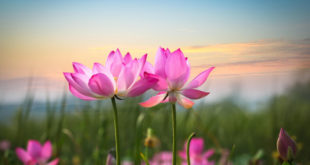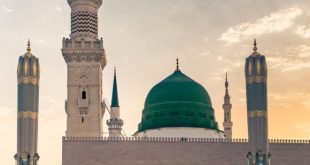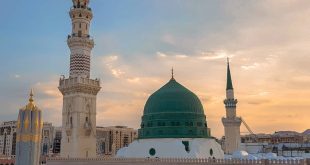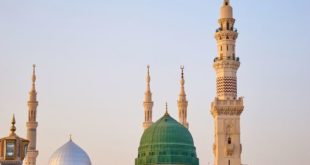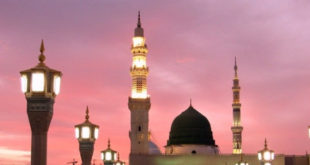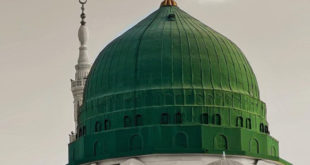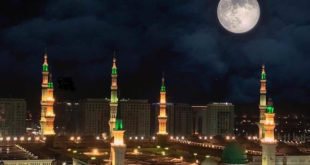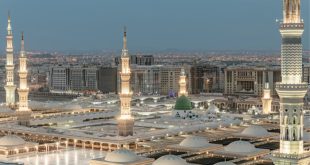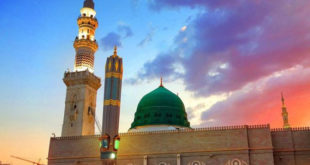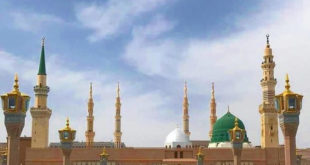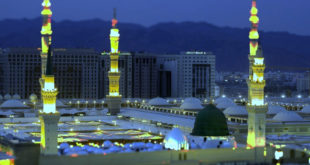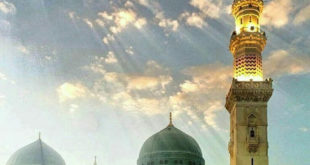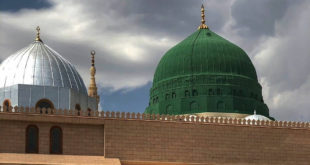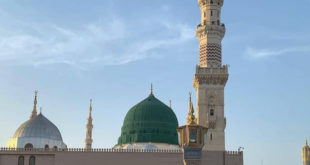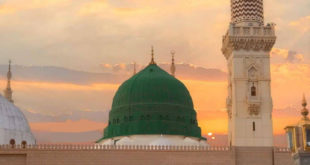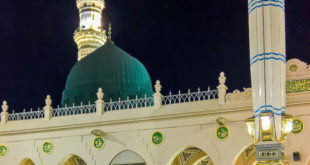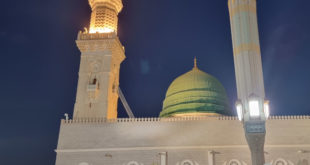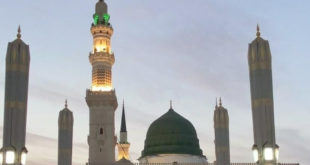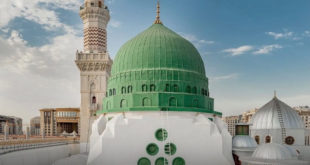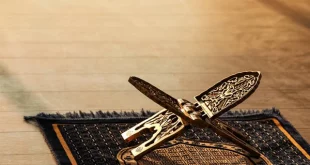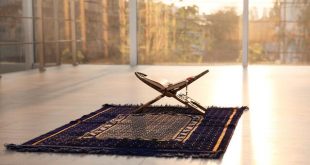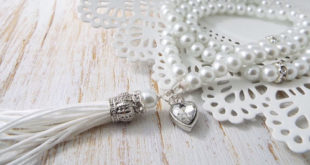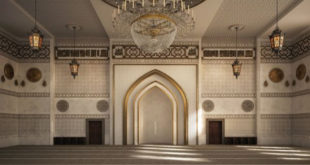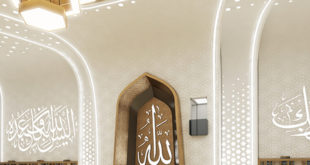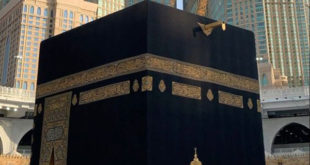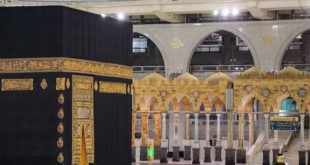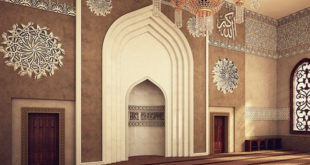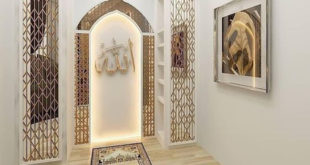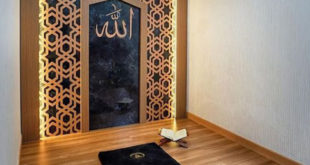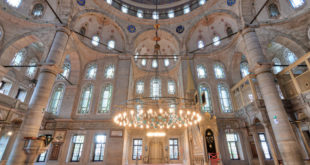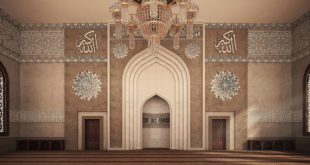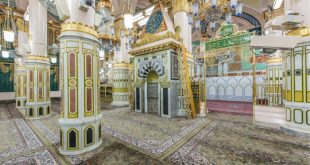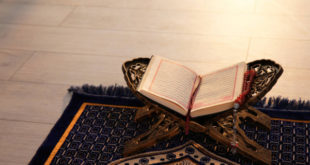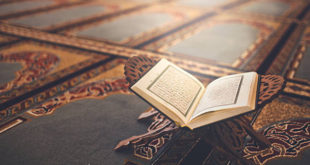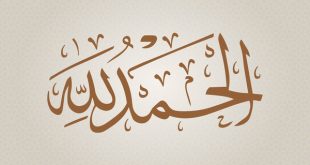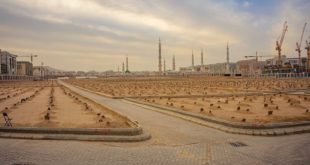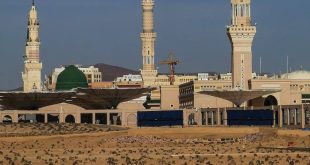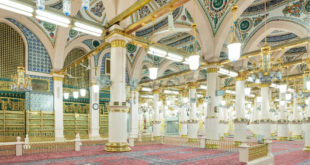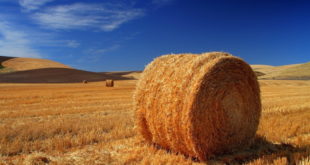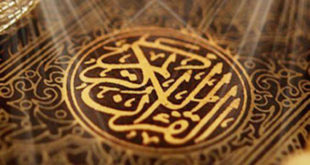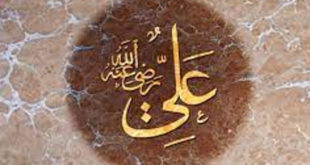1. Enter the toilet with your left foot.[1] 2. Do not remove your lower garment while standing. Instead, remove your lower garment after you draw close to the ground so that the least amount of time is spent with the satr exposed.[2] عن ابن عمر رضي الله عنهما قال كان …
Read More »Recent Posts
February, 2020
-
13 February
Purdah Q&A (Part 7)
Basic guidelines with regards to purdah Speaker: Ml. Ebrahim Salajee Duration: 00:01:22 Format: mp3 Size: 1.2 MB Download If you did not understand the maslah or any aspect of the maslah, then refer your question to Muftionline.co.za
Read More » -
12 February
Sunnats and Aadaab of Ghusal- Part 1
1. Do not face the qiblah while performing ghusl.
2. Bath in such a place where no one can see you. It is better to perform ghusl with the satr area covered. However, if one is in an enclosed area (e.g. bathroom) and one performs ghusl without the satr covered, it will be permissible.
Read More » -
11 February
The Obligation of Fasting
Q: Upon whom is fasting during Ramadhaan compulsory? A: Fasting is compulsory upon every muslim, baaligh, sane male and female who is not in the state of haidh or nifaas. (هو) لغة امساك مطلقا و شرعا (إمساك عن المفطرات) الآتية (حقيقة أو حكما) كمن أكل ناسيا فإنه ممسك حكما (في …
Read More » -
10 February
Part 9 – Series on the Shamaa’il (the noble character and sublime conduct) of Rasulullah (sallallahu ‘alaihi wasallam)
The Unprecedented and Unparalleled Generosity of Hazrat Rasulullah (sallallahu ‘alaihi wasallam) عن محمد بن المنكدر قال سمعت جابر بن عبد الله يقول ما سئل رسول الله صلى الله عليه وسلم شيئا قط فقال لا (الشمائل المحمدية للترمذي رقم: 335) Translation: Hazrat Jaabir (radhiyallahu anhu) mentions, “Rasulullah (sallallahu ‘alaihi wasallam) never …
Read More »
-
Tafseer of Surah Naazi’aat
وَ النّٰزِعٰتِ غَرۡقًا ۙ﴿۱﴾ وَّ النّٰشِطٰتِ نَشۡطًا ۙ﴿۲﴾ وَّ السّٰبِحٰتِ سَبۡحًا ۙ﴿۳﴾ فَالسّٰبِقٰتِ سَبۡقًا ۙ﴿۴﴾ …
Read More » -
The Extreme Generosity of Hazrat Talhah (radhiyallahu ‘anhu)
-
Securing the Blessings of Ramadhaan, Umrah and Hajj – The Tolerance of Rasulullah (sallallahu ‘alaihi wasallam) – The Orchards of Love – Part Seventy Three
-
Receiving the title of Al-Fayyadh from Rasulullah (sallallahu ‘alaihi wasallam)
-
Hazrat Talhah (radhiyallahu ‘anhu) Fulfilling his Pledge
-
Receiving Seventy Rewards
Hazrat Abdullah bin Amr bin Aas (radhiyallahu ‘anhuma) reported, “Whoever sends salutations upon Nabi (sallallahu ‘alaihi wasallam) once, Allah Ta‘ala and His angels will send seventy mercies and blessings upon him in return of his one Durood. Hence, whoever wishes to increase his Durood should increase it, and whoever wishes to decrease his Durood should decrease it (i.e. if he wants to earn great rewards, then he should increase his Durood).”
Read More » -
Increase in Sustenance
-
The Reward of Fasting on the Day of Arafah
-
The Angel that Stands at the Blessed Grave of Hazrat Rasulullah (sallallahu ‘alaihi wasallam) to Convey the Durood of the Ummah
-
Reciting Durood when Entering the Musjid
-
Sunnats and Aadaab of the Host – 2
2. Entertaining and hosting guests is a means of attaining great barakah (blessings) from Allah …
Read More » -
Sunnats and Aadaab of the Host – 1
-
Sunnats and Aadaab which every person needs to adhere to in his individual life – 9
-
Sunnats and Aadaab which every person needs to adhere to in his individual life – 8
-
Sunnats and Aadaab which every person needs to adhere to in his individual life – 7
-
Hazrat Ali (radhiyallahu ‘anhu) – Part Forty-One – Being Sent by Rasulullah (sallallahu ‘alaihi wasallam) to Level the Graves, Destroy Idols and Erase Pictures
Hazrat Ali (radhiyallahu ‘anhu) reports that on one occasion, Rasulullah (sallallahu ‘alaihi wasallam) attended a …
Read More » -
Rasulullah (sallallahu ‘alaihi wasallam) Approving of the Verdict of Hazrat Ali (radhiyallahu ‘anhu) – Part Forty
-
The True Ulamaa – Hazrat Ali (radhiyallahu ‘anhu) – Part Thirty Nine
-
Du‘aa for Assistance in Settling Debts – Hazrat Ali (radhiyallahu ‘anhu) – Part Thirty Eight
-
The Concern of Hazrat Ali (radhiyallahu ‘anhu) regarding Business being Conducted According to the Islamic Principles – Part Thirty Seven
 Ihyaaud Deen An Effort to Revive Deen in Totality
Ihyaaud Deen An Effort to Revive Deen in Totality




















